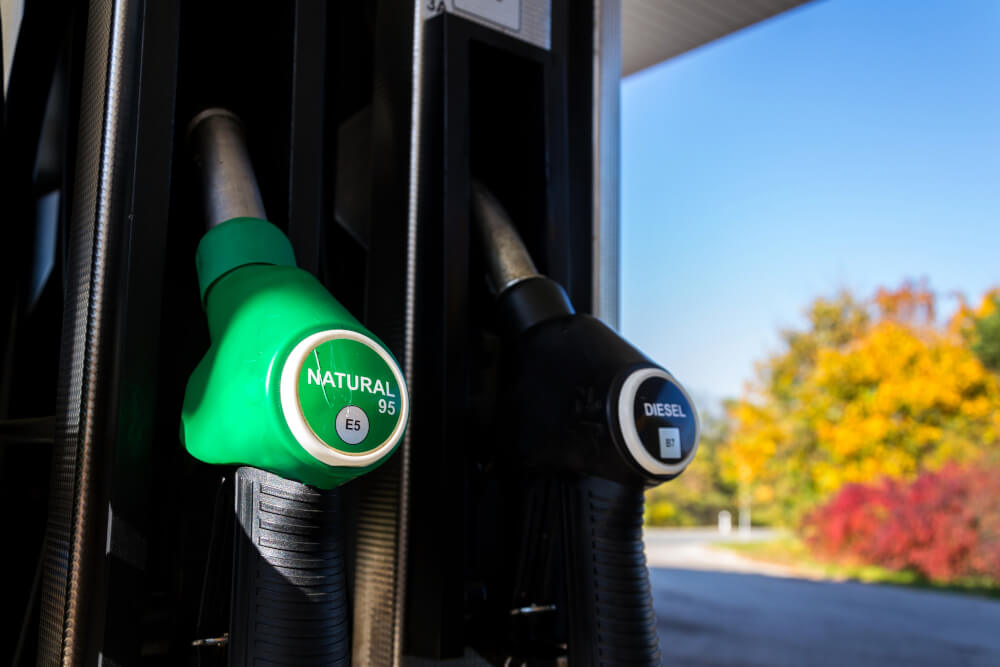As of September 2019, all petrol stations must display new labels on their petrol and diesel pumps as a legal requirement. Replacing the word “unleaded” is a new circular label displaying “E5”, and replacing the word “diesel” is a square label displaying “B7”. It is thought that most petrol stations will still display the existing labels alongside however, in order to avoid confusion.
Why are there new fuel labels in the UK?
The government has implemented this new labelling system in an effort to make consumers more aware of their choices when it comes to fuel. They are indicative of the country’s move towards more renewable energy sources, as they represent the blend of renewable fuel with traditional fossil fuels. These blended fuels have been used in the UK for more than 10 years, however it is thought that there will be an increase in the use of renewable fuel going forward.
What is E5 fuel and B7 diesel?
The new labels represent the amount of renewable fuel found in petrol and diesel;
- ‘E5’ on the petrol label means ‘up to 5% of ethanol’, which is a renewable fuel derived from plant material.
- ‘B7’ on diesel means ‘up to 7% of biodiesel’, most of which comes from reused cooking oils such as rapeseed and vegetable oils.
Will more renewable fuel be used in the future?
In June 2019 the government passed a law committing to net zero emissions by 2050. A pledge such as this illustrates the UK’s move towards a more ‘green-friendly’ lifestyle, which is likely to impact further on fuel for motor vehicles. Many drivers are concerned with the future of diesel cars, which are known to be more environmentally-harmful than petrol.
In some parts of Europe, petrol known as E10 (up to 10% ethanol) is already being used, so it would be fair to assume that this will be introduced in the UK at some point in the future. At the time of writing, however, it is said that more than 800,000 older cars cannot use this fuel – a fact that has delayed its launch here.
Do renewable fuels make a big difference to the environment?
In 2018, the use of blended fossil and renewable fuels reduced Carbon Dioxide emissions by around 2.7 million tons. This is the equivalent of taking 1.2 million cars off the road.
This demonstrates the effectiveness of using blended fuels, and offers an insight into why the government is concentrating efforts on increasing the production – and use – of renewable fuels.
Which vehicles can use E5 fuel and B7 diesel?
All vehicles that use diesel can use B7. Petrol stations across the UK have been supplying B7 diesel for more than 10 years – it’s the same fuel with a new label.
All vehicles that use petrol can use E5, again this is the same fuel that has been available for more than 10 years; it just has a new label now. Not all petrol cars can use E10, which is available in other parts of Europe. Drivers who take their petrol cars abroad should find out if their car can run with E10, before filling up.


